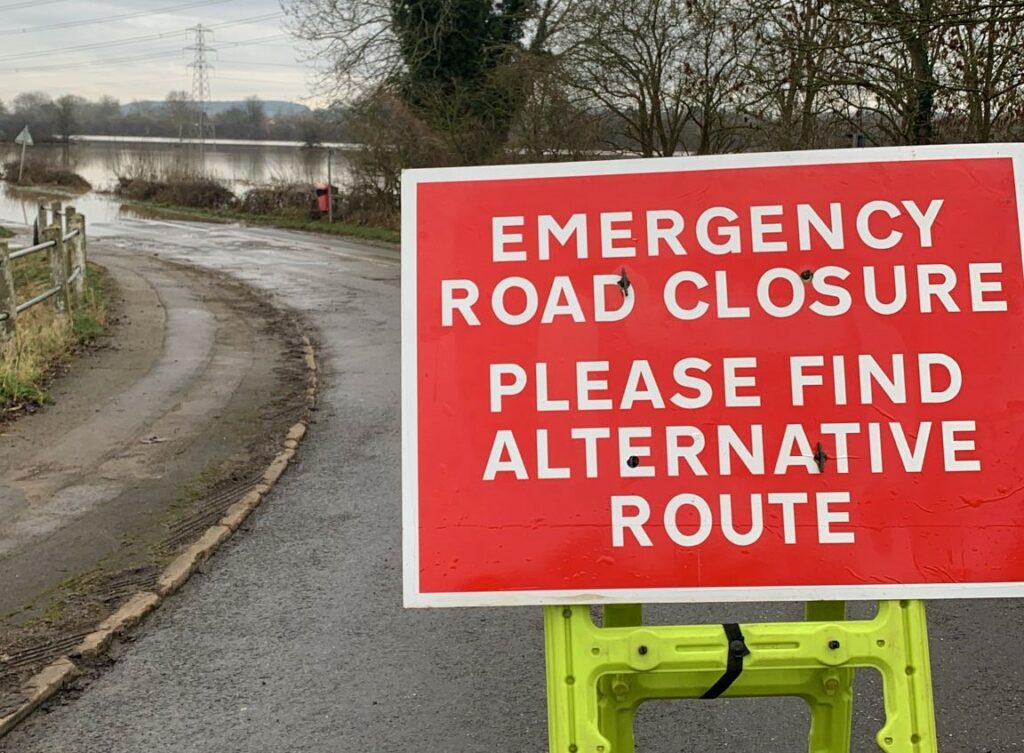By Jacob Larkin
Drainage engineers from Lanes Group plc are responding to calls for help across England and Wales as businesses are threatened by flooding caused by Storm Henk.
Lanes teams are extremely busy as flooding continue to cause major problems, with call-outs particularly high in Nottinghamshire, Derbyshire, Staffordshire, the West Midlands, Gloucestershire, Avon, and South Wales.
Lanes Derby Area Development Manager Chris Norbury said: “We’re doing all we can to help our customers, responding to flooding affected shops, warehouses, offices and factories, and assisting local councils in their flood recover work.

“There is a lot of standing water across car parks and hard standing areas which is making it difficult for businesses to trade. At this stage it’s a process of firefighting a problem, doing the best we can to support customers.
“Once the waters recede, there will be more to be done to clean up areas and remove silt and other debris that will have been washed into surface water drainage systems.
“In some cases, foul sewer systems will also have surcharged, so some businesses will be faced with contamination from raw sewage.”
Heavy rains test surface water drainage systems to the limit. Weaknesses in the system, such as blockages in downpipes or in car park slot drains and gullies, can quickly trigger localised flooding, added Chris Norbury.
Storm Henk is the latest in a series of adverse weather events to hit the UK in recent weeks. Persistent heavy rainfall has left the ground waterlogged and rivers bursting their banks.
In areas with the highest flood risks, this has left water with nowhere to go, resulting in flooding.
On the morning of Friday 5th January, the Environment Agency had issued 285 live flood alerts across England, while Natural Resources Wales had 19 live flood alerts. There are no flood alerts in Scotland.
Kyle Burgess, Area Development Manager for Lanes Cardiff, said: “We are very busy supporting customers who have been affected by flooding or are concerned about the risk of surface water flooding affecting their premises.
“Our jet vac tankers are able to over-pump surface water into nearby clear-running stormwater drains and remove sewage that may have flooded buildings and take it for safe disposal at an authorised waste site.”
Where circumstances and available resources allow, it may also be viable to deploy tankers to vacuum surface flood water and take it for safe disposal at an authorised waste site.
Kyle Burgess added: “However, where an area’s entire surface water systems is overloaded, there is so much excess water that there can be limited options, in the short-term for clearing it from a particular location.”
In some instances, it looked like the disruption – for example flood water blocking car parks and access roads – could have been avoided if the site’s surface water system had been clear and flowing.
This demonstrates the value of preparing for what are expected to become more regular periods of volatile weather, caused by climate change, by carrying out appropriate planned and preventative drainage maintenance.






Recent Comments